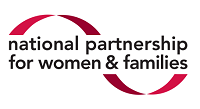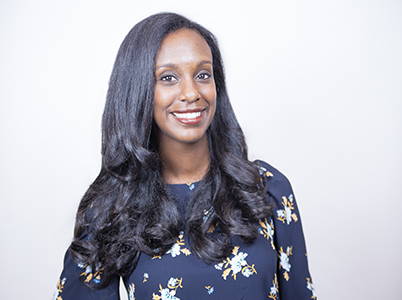
The National Partnership for Women and Families (NPWF) - represented by Sarah Coombs - attended the ECANA Conference for Community, Education, and Research Training.
We know that advocacy is a critical component of ensuring early diagnosis and ensuring care among Black women with EC.
NPWF helped us get that conversation started by facilitating the first ever national conversation about policy priorities for Black women with EC.
Read on for Sarah's NPWF blog post about her experience at the ECANA Conference. You can also access the post and learn more about NPWF here.
 Racial Inequities in Care and Outcomes of Endometrial Cancer
Racial Inequities in Care and Outcomes of Endometrial Cancer
Did you know that endometrial cancer is four times more common than cervical cancer or that it’s responsible for one of the largest racial disparities among cancers in the U.S.? Probably not.
As part of the National Partnership’s commitment to gender and racial equity, I had the honor and privilege of attending the first annual Endometrial Cancer Action Network for African Americans (ECANA) conference for Community, Education, and Research Training. Survivors and women currently fighting this cancer shared their experiences and stories about not being listened to by medical providers, getting misdiagnosed, and delaying care because of the dual demands of work and family and lack of paid sick days.
Endometrial cancer, a form of uterine cancer, is the most commonly diagnosed gynecological cancer in the U.S., and the incidence is rising among all racial and ethnic groups. While the rate of endometrial cancer is the same in Black and white women, Black women have a 55 percent greater 5-year mortality rate than white women. One of the reasons for this disparity is delays in diagnosis. If endometrial cancer is detected early and treated effectively, there is an over 80 percent 5-year survival rate, and yet Black women do not experience those same chances. Black women are less likely to receive critical early diagnosis and are more likely to be diagnosed with advanced-staged endometrial cancer, regardless of high-risk types, socioeconomic status, and insurance coverage.
ECANA, the brainchild of Dr. Kemi Doll; a Gynecologic Oncologist and Assistant Professor at the University of Washington, is a remarkable group of patients, survivors, advocates, researchers, and physicians who have come together to increase awareness, support patient engagement in research design and implementation, and empower Black women affected by endometrial cancer.
Investigating why Black women experience delays and disparities in treatment and outcomes is at the heart of Dr. Doll’s research. She is asking revealing questions like “what is going on before and after women disclose symptoms to a health care provider?” and has found racial differences in pre-diagnosis care. For example, there are guidelines medical providers should follow to evaluate whether vaginal bleeding could be connected to endometrial cancer — as it’s a common symptom. Yet, older Black women who are at highest risk for the most aggressive types of endometrial cancer are less likely to have care that is consistent with those guidelines. That can lead to delayed diagnosis, which, in turn increases the risk that their cancer will be at an advanced stage when they finally are diagnosed.
After more than 20 years of research on endometrial cancer disparities, no progress has been made to improve Black women’s survival rate — so Dr. Doll is taking a different approach. She’s asking tough questions about implicit bias and health equity and she is engaging a community of Black women whose voices are often missing in research and cancer care. Through ECANA, Dr. Doll is building relationships and lifting up the experiences of Black women in the health care system.
Stay tuned for future ECANA advocacy efforts!
Get in touch with us if you would like to support this branch of our work.

